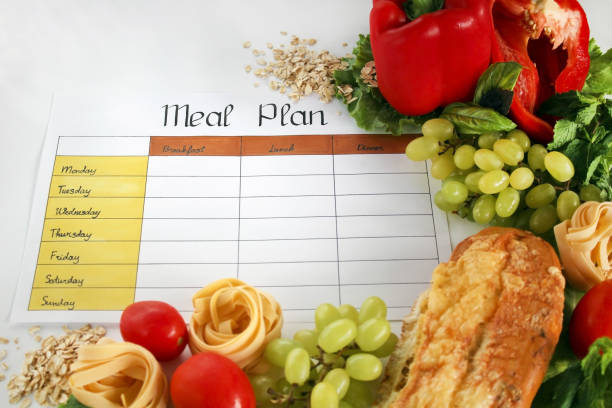Meal Planning
Smart Budget-Friendly Meal Planning Tips to Save Money and Eat Well
Meal planning is an excellent strategy for saving money and eating well. By planning your meals carefully, you can make the most of your food budget, reduce waste, and enjoy nutritious meals. Here are some smart budget-friendly meal planning tips to help you save money and eat well:
1. Plan Your Meals Around Sales and Discounts
Why It’s Important: Shopping based on sales and discounts can significantly reduce your grocery bills.
Tips:
- Check Weekly Flyers: Review store flyers and apps for upcoming sales and discounts on staple items and fresh produce.
- Stock Up on Sale Items: Purchase non-perishable items and freezer-friendly foods in bulk when they are on sale.
- Use Coupons: Look for and use coupons for items you regularly buy to save additional money.
2. Create a Weekly Meal Plan
Why It’s Important: A weekly meal plan helps organize your meals and manage your grocery list effectively.
Tips:
- Plan Simple Meals: Focus on simple and versatile recipes that use affordable ingredients.
- Include Leftovers: Plan meals that produce leftovers to minimize cooking and reduce food waste.
- Balance Meals: Ensure your meal plan includes a variety of proteins, vegetables, and grains to keep meals nutritious and interesting.
3. Make a Detailed Grocery List
Why It’s Important: A detailed grocery list helps prevent impulse buys and ensures you purchase only what you need.
Tips:
- List by Category: Organize your grocery list by category (produce, dairy, meats, etc.) to make shopping more efficient.
- Stick to the List: Avoid purchasing items that are not on your list to stay within your budget.
4. Buy in Bulk
Why It’s Important: Buying in bulk can reduce the cost per unit for non-perishable and freezable items.
Tips:
- Focus on Staples: Purchase bulk staples like rice, pasta, beans, and canned goods that have a long shelf life.
- Use a Freezer: Freeze bulk meats and bread to extend their shelf life and reduce waste.
5. Cook in Batches
Why It’s Important: Batch cooking saves time and money by preparing larger quantities of food at once.
Tips:
- Prepare Meals Ahead: Cook large portions of meals like soups, stews, or casseroles that can be portioned out for several days.
- Use Freezer-Friendly Recipes: Make meals that can be frozen and reheated for convenient, budget-friendly dinners.
6. Embrace Meatless Meals
Why It’s Important: Meatless meals can be less expensive and provide a variety of nutrients.
Tips:
- Incorporate Legumes: Use beans, lentils, and chickpeas as affordable protein sources in dishes like chili, stir-fries, and soups.
- Try Meat Substitutes: Experiment with meat substitutes such as tofu or tempeh for a cost-effective alternative.
7. Utilize Leftovers Creatively
Why It’s Important: Using leftovers creatively prevents waste and stretches your food budget.
Tips:
- Repurpose Leftovers: Turn leftover chicken into a new dish like chicken salad or soup.
- Store Properly: Store leftovers in airtight containers and label them with dates to keep track of their freshness.
8. Grow Your Own Herbs and Vegetables
Why It’s Important: Growing your own herbs and vegetables can reduce grocery costs and provide fresh ingredients.
Tips:
- Start Small: Grow easy-to-maintain herbs like basil, mint, or rosemary in pots on your windowsill.
- Use Leftover Scraps: Regrow vegetables like green onions or lettuce from kitchen scraps to save money.
9. Plan for Seasonal Produce
Why It’s Important: Seasonal produce is often cheaper and fresher.
Tips:
- Buy Seasonal Fruits and Vegetables: Purchase fruits and vegetables that are in season to get the best prices and flavors.
- Visit Farmers’ Markets: Check local farmers’ markets for deals on fresh, seasonal produce.
10. Use Budget-Friendly Recipes
Why It’s Important: Some recipes are designed to be cost-effective while still providing balanced nutrition.
Tips:
- Search for Budget Recipes: Look for recipes specifically labeled as budget-friendly or inexpensive.
- Optimize Ingredients: Choose recipes that use affordable, pantry-friendly ingredients.
11. Reduce Food Waste
Why It’s Important: Reducing food waste maximizes your grocery budget and promotes sustainability.
Tips:
- Use Scraps: Incorporate vegetable scraps into broths or use overripe fruits in smoothies or baking.
- Plan Portions: Prepare and serve portions that match your family’s appetite to avoid excess leftovers.
12. Track Your Spending
Why It’s Important: Monitoring your grocery spending helps you stay within budget and make adjustments as needed.
Tips:
- Keep a Budget Log: Track your grocery expenses and compare them with your budget.
- Review and Adjust: Regularly review your spending and meal planning strategies to find areas for improvement.
Conclusion
Implementing these budget-friendly meal planning tips can help you save money, reduce stress, and maintain a healthy diet. By planning meals around sales, cooking in batches, embracing meatless options, and utilizing leftovers, you can make the most of your food budget while enjoying nutritious and satisfying meals.

